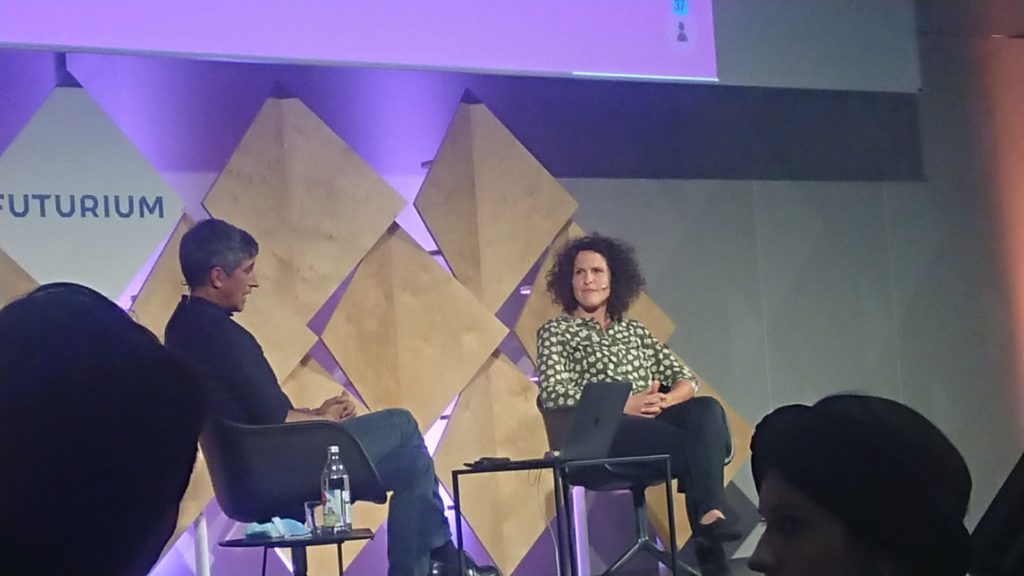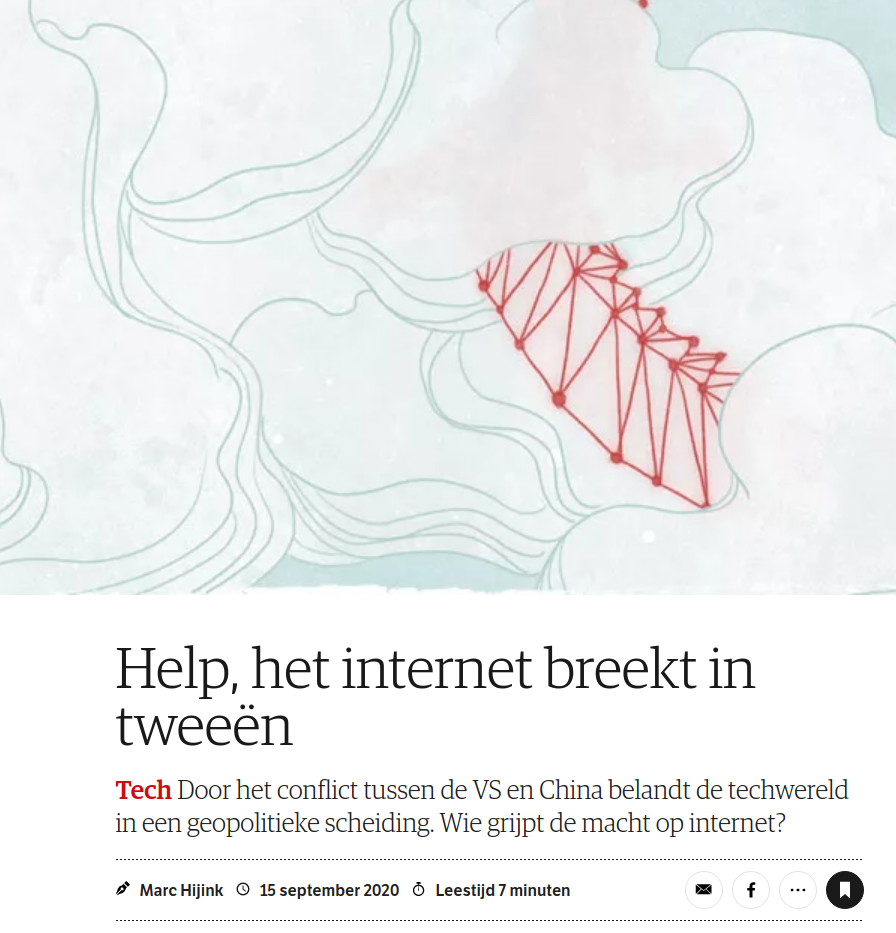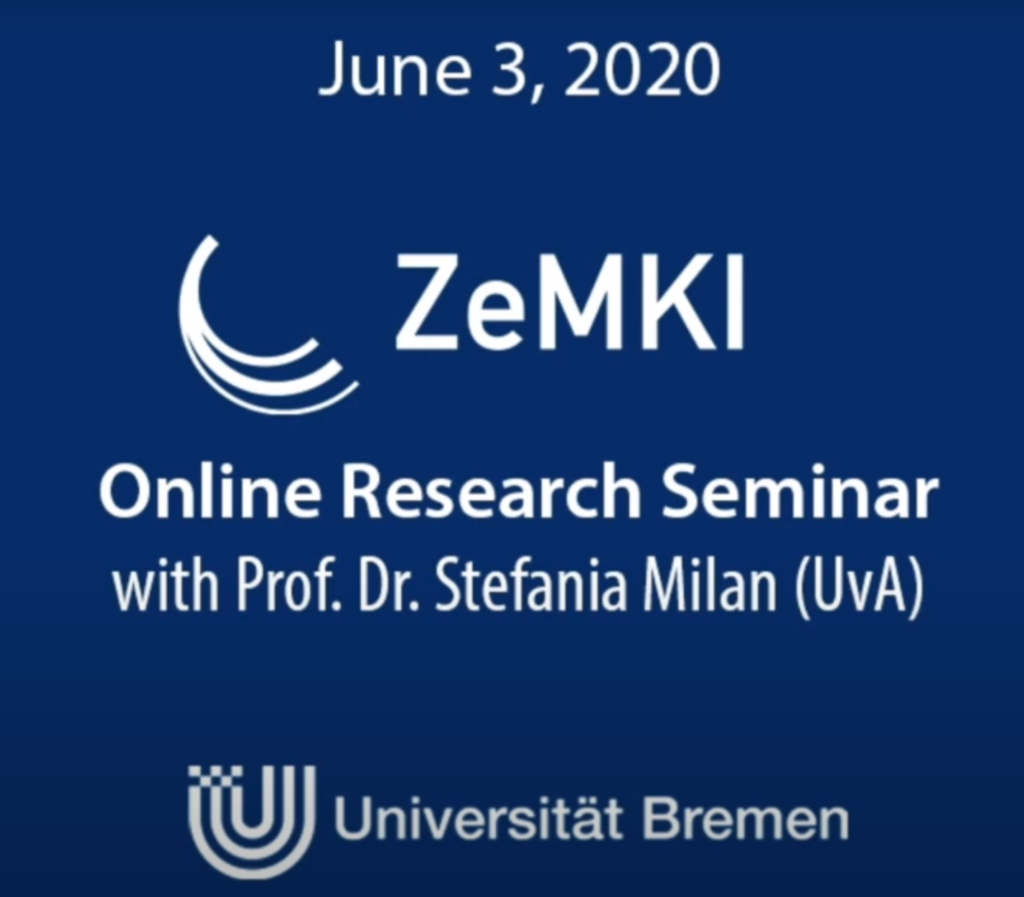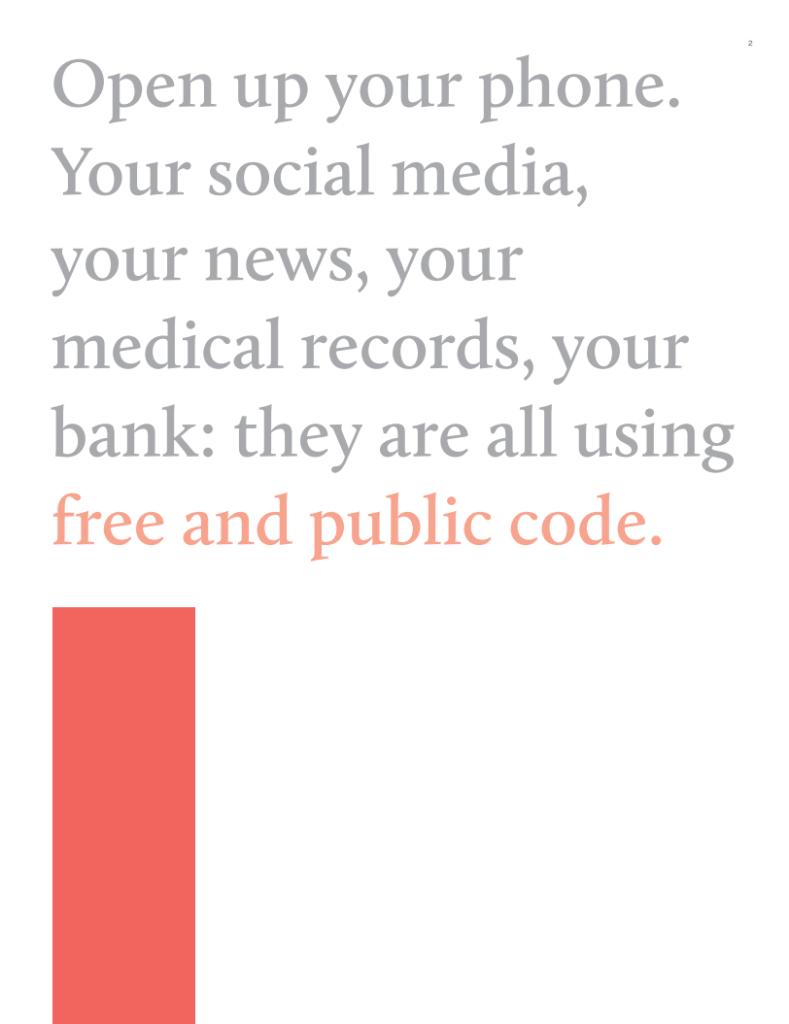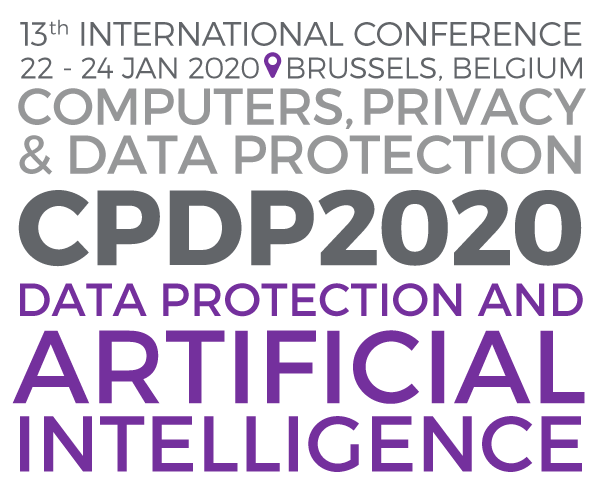Author: Jeroen de Vos, header image by Ford Foundation
This blog post will explore the potential of repurposing impact assessment tools as a means to leverage funding problems in Free and Libre Open Source Software by making explicit the role they have in crucial public digital infrastructure. Two key concepts are relevant to help explain this specific exploration, the first of which is Free and Libre Open Source Software (FLOSS) and the central role it plays in facilitating a common software infrastructure used by both public and private organisations as well as civil society at large. The second is the notion of impact assessment as a strategy to understand, account for and communicate results of your efforts beyond merely financial numbers.
‘Money talk is kind of a taboo in the F[L]OSS community’, one respondent replied in an interview I most recently conducted at CCC 36C3. The talk he just gave outlined some of the tentative revenue models one could think of to make your software development activities more sustainable – it attracted a larger-than-expected audience with interesting follow-up questions. FLOSS software development very much draws on the internal motivation of developers or a developer community, with recurring questions of sustainability when relying on volunteering time that could be spent differently. And the complexity of this situation cannot be underestimated. The 2016 Ford Foundation report Roads and bridges: The Unseen Labor Behind Our Digital Infrastructure (Eghbal) contextualizes some of the common problems in the open-source software development – think of for instance the lack of appreciation of invisible labour, the emotional burden of upkeeping a popular project started, or the constant struggle over motivation while being structurally un- or underfunded.
The report draws on the metaphor of FLOSS as infrastructure, since it is readily available to anyone alike, but also in needs maintenance – has its limitations, but works well to illustrate the point. Just like infrastructure supports the flows of ideas, goods and people FLOSS operates on every level of digital infrastructure, whether talking about the NTP protocol synchronizing the internet, GnuPG (an encryption protocol allowing secure communication and data sharing) or MySQL (a database structure which quickly became a go-to standard for information storage and retrieval). Another commonality: as long as the infrastructure functions, its underlying support systems are seemingly invisible. That is, up until the point of failure it is unseen to which extent both private and public goods and services and public or private communication rely on these software packages. Only at failure, it becomes painfully explicit.
The recent well-known example of this escalation taking place is with the so-called Heartbleed bug. The FLOSS OpenSSL package contains the most widely used protocol for encrypting web traffic. Due to a bug creeping into the code somewhere in 2011, attackers could intercept information from connections that should be encrypted – which rendered large parts of online infrastructure unsafe in design, including services like Google, Amazon and many others. The issue raised the attention to the OpenSSL developers’ under-capacity – only one working full time for a salary of only a third to its colleagues in commercial counterparts. This is the point where the impact assessment tools might come into play – rather than relying on controversies to make visible the apparent widespread embedding and dependency on particular pieces of software, why not use impact assessment as a way to understand public relevance?
Conducting impact assessments can help communicate the necessity of maintenance by making visible the embeddedness of FLOSS software packages – whether it is on the level of language, operating system or protocol. To briefly contextualize, impact assessment grew out of changing management needs and has been implemented in the organisation of ‘soft output’ whether it be policymaking or social entrepreneurship. It is an interventionist tool that allows defining qualitative output with subsequent quantitative proxies to help understand the implementation results in relation to the desired output as described in a theory of change. It helps to both evaluate the social, technological, economic, environmental and political value created and subsequently make insightful the extend to which obsoletion would disrupt existing public digital infrastructure.
Without going too much into detail it needs mentioning that impact assessment already made its introduction as part of reporting deliverables to funders where relevant. Part of this exercise, however, is to instrumentalize impact assessment not only for (private) reporting by projects already funded but for (public) communicating FLOSS impact especially for projects without the necessary revenue streams in place. Needless to say, this output is only one of the steps in the process of making crucial FLOSS more sustainable but an important one, assessment output might help tapping into public or private sponsorship, establishing new collaborations with governments, educators and businesses alike, and venture into other new and exciting funding models.
This piece is meant as a conversation starter, do you already know of existing strategies to help communicate FLOSS output, are you involved in creating alternative business models for for-good public data infrastructure – ideas and comments welcome. Email: jeroen@data-activism.net
As
for a short disclaimer I have been working with social enterprises
developing market research and impact-first business models, I have
been mulling over the crossover between social entrepreneurship and
(FLOSS)
activism, in their common struggle for sustainability, relying on
informal networks or communities of action and trying to make a
social change either from within or from the outside. This blog post
is an attempt
to think together social entrepreneurship and data activism through
the use of a use-case: impact assessment for FLOSS.
References:
Eghbal, N. (2016). Roads and bridges: The unseen labor behind our digital infrastructure. Ford Foundation.
